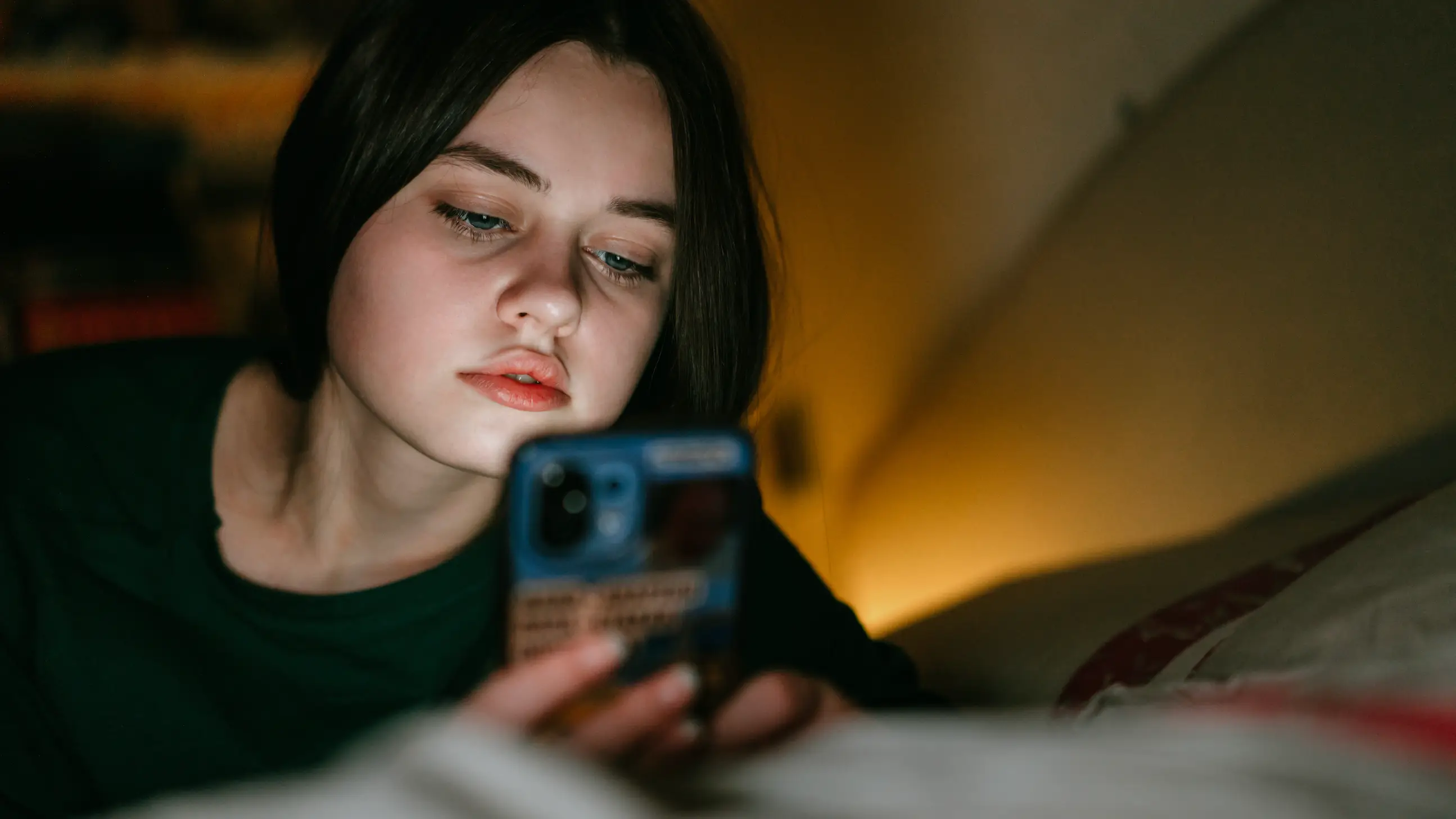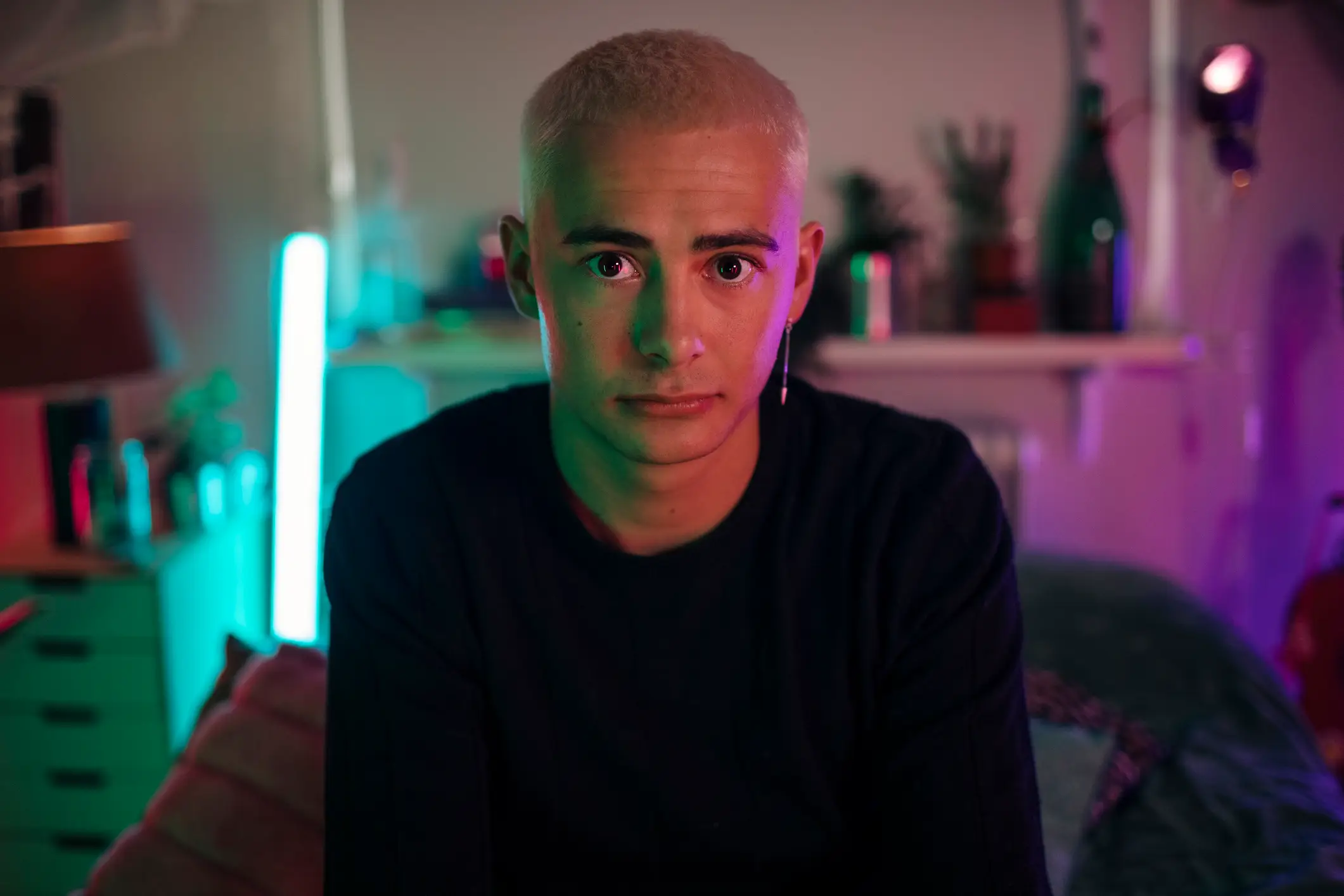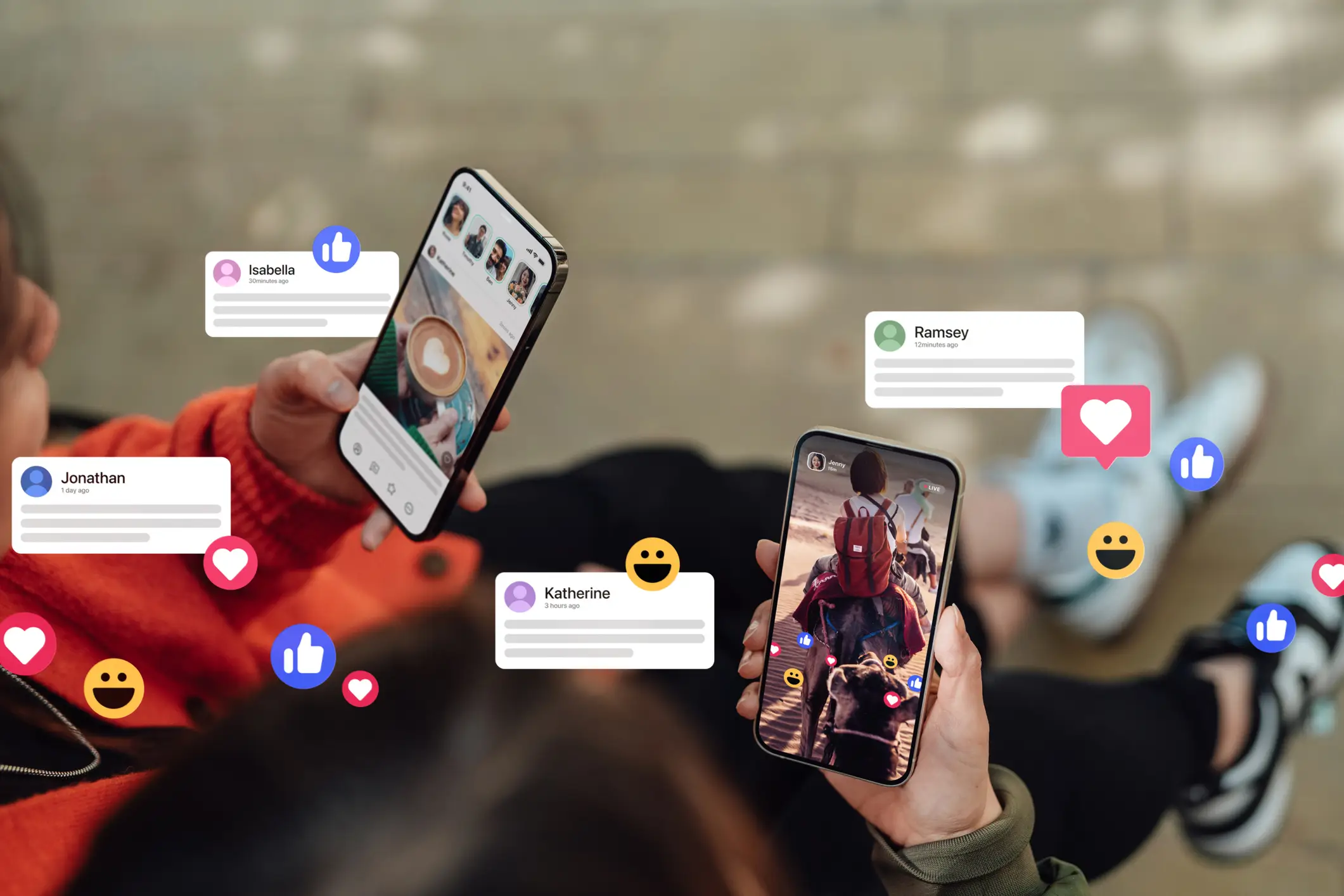
TikTok has long been the home of internet debates and the latest sees Ge- Z and Millennials go head-to-head over a common facial expression.
The so-called Gen-Z stare is probably something we've all had to deal with, or do ourselves, but now an expert has explained why it could mean the generation is doomed, or 'cooked' as the kids might say.
It is almost a common consensus that too much time looking at screens is rotting the brains of the younger generation, which can often lead to them feeling lost in social situations or when trying to figure out what a landline phone is.
Although I just about sneak into the Gen-Z age range, I feel confident in saying that I've never shown off the Gen-Z stare after learning exactly what it is.
Advert

What is the Gen-Z stare?
Have you ever tried to start a conversation with a younger family member, or come across a young retail worker for example, and been met by a blank expression after asking what most would consider a perfectly sensible question?
If you have, then you've probably experienced the Gen-Z stare.
It can be incredibly frustrating to try and get an answer or even a response from some younger folks as they stare into nothingness, which makes even the under-30s think things like 'it wasn't like this in my day' or 'what do they even teach them at school these days?'
While we might consider this response to be rude or perhaps just plain stupid, a Gen-Z self-help author reckons it might be part of a wider problem that has affected the younger generations ever since the coronavirus pandemic hit over five years ago.
What does the Gen-Z stare mean?
Tam Kaur, a 24-year-old author, thinks it’s shortsighted to reduce the Gen-Z stare to rudeness when it’s a ‘symptom of something deeper’.
She said: "We’re the first generation to grow up with our faces constantly on display in selfies, stories, video calls, with everything being scrutinised online.
"That creates a heightened sense of self-consciousness and a fear of being judged, even in the smallest interactions.
"Previous generations didn’t have to think about how they looked from every angle or whether they sounded awkward saying hello, but Gen-Zs do."

Bex Spiller, a workplace wellbeing consultant, thinks some Gen-Z youngsters might physically and mentally be unable to check in, which could spell bad news for the future of the generation.
She said: "This Gen Z stare could actually be a symptom of burnout and cognitive overload.
"This generation has entered the workforce during a time of incredible pressure with rising living costs, unstable job markets and constant digital noise.
"It’s unsurprising that this would cause their nervous system to react in a way that looks like they’re going blank or disconnecting. Like fight or flight, our nervous system also has ‘freeze’ and that could be what we’re seeing in a generation that feels overwhelmed right now."
Why don’t Millennials like the Gen-Z stare?
While those who employ the Gen-Z stare might argue that it only comes out when they are asked pointless or stupid questions, millennials are not a fan.
It's easy to understand why, because it is essentially the Gen-Z generation poking fun at older people and suggesting that they are the smarter ones in these specific situations.
So, no matter what your age, maybe use your voice instead of just staring next time you're asked a question you don't necessarily understand or like.
Topics: Gen Z, TikTok, Social Media, Mental Health
